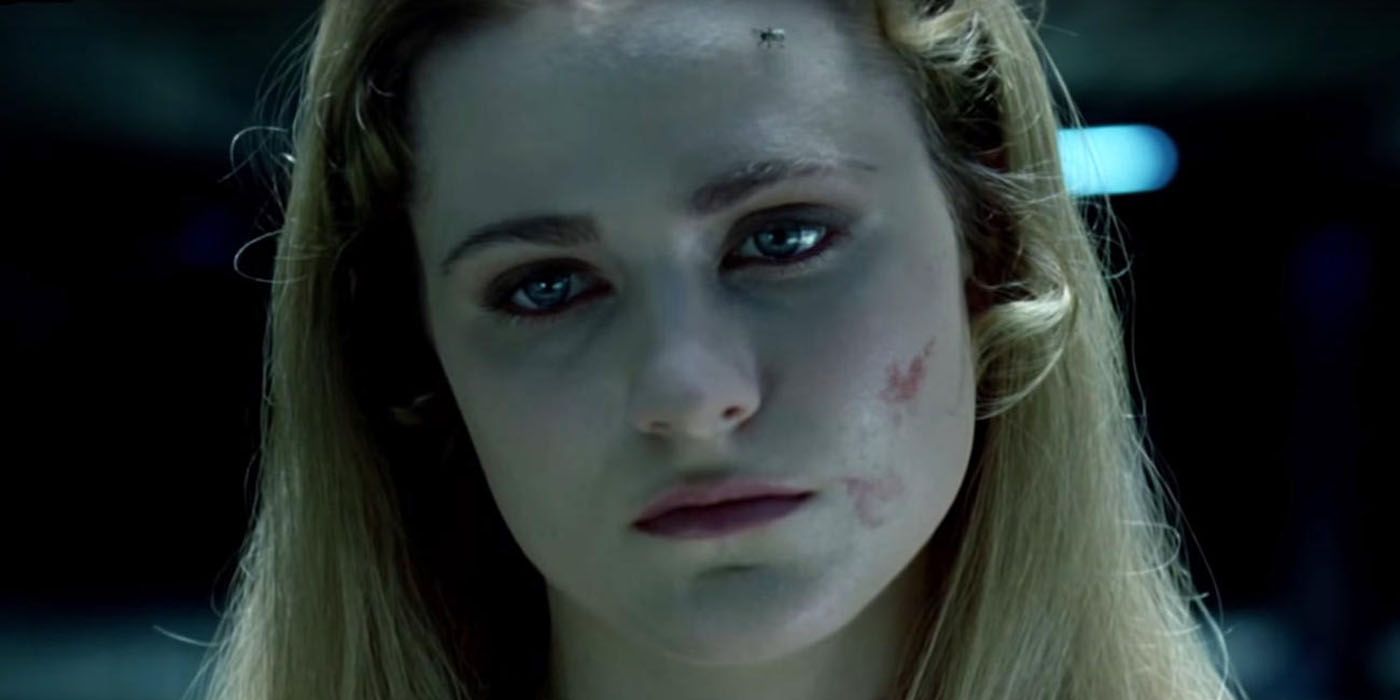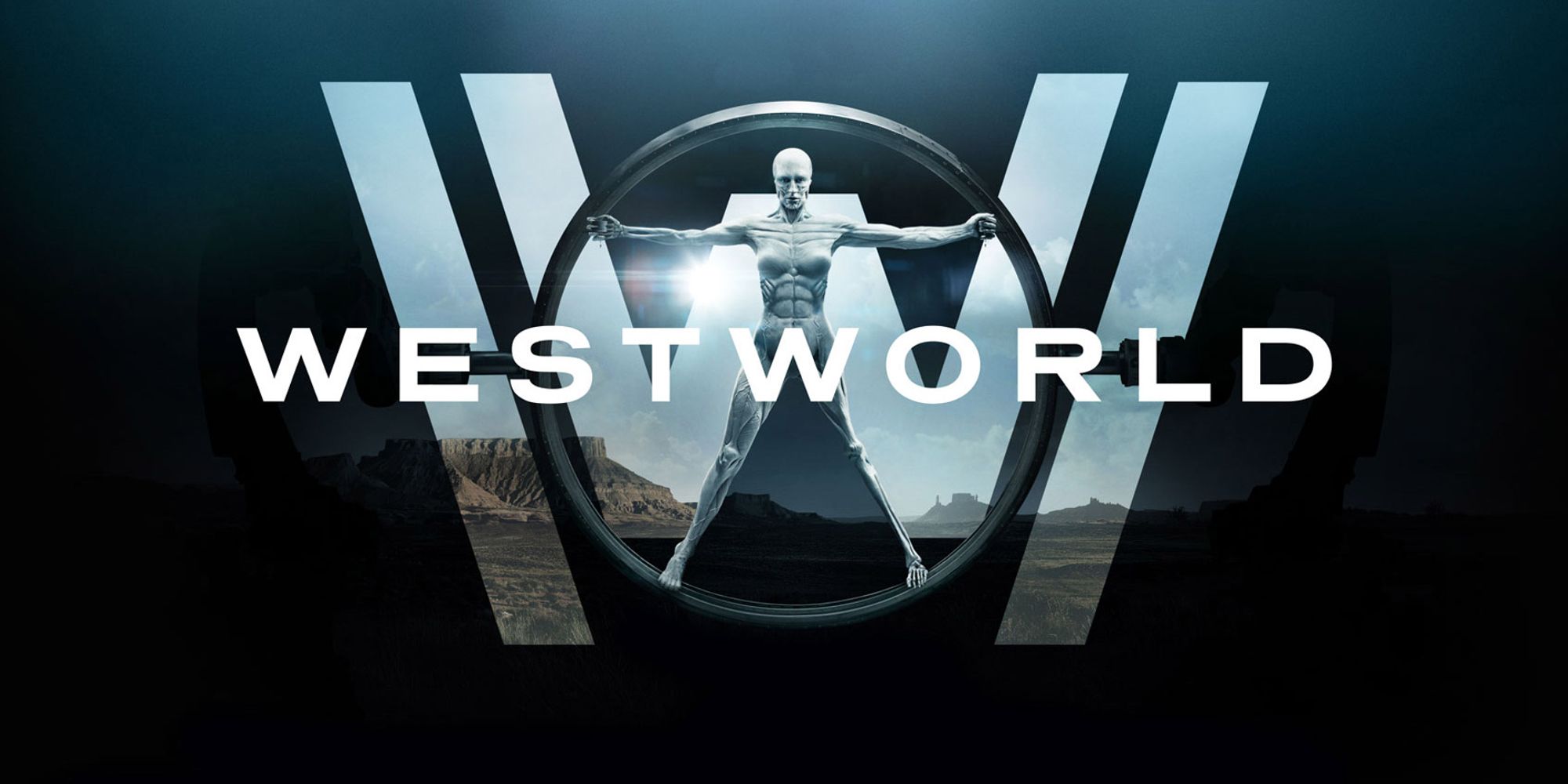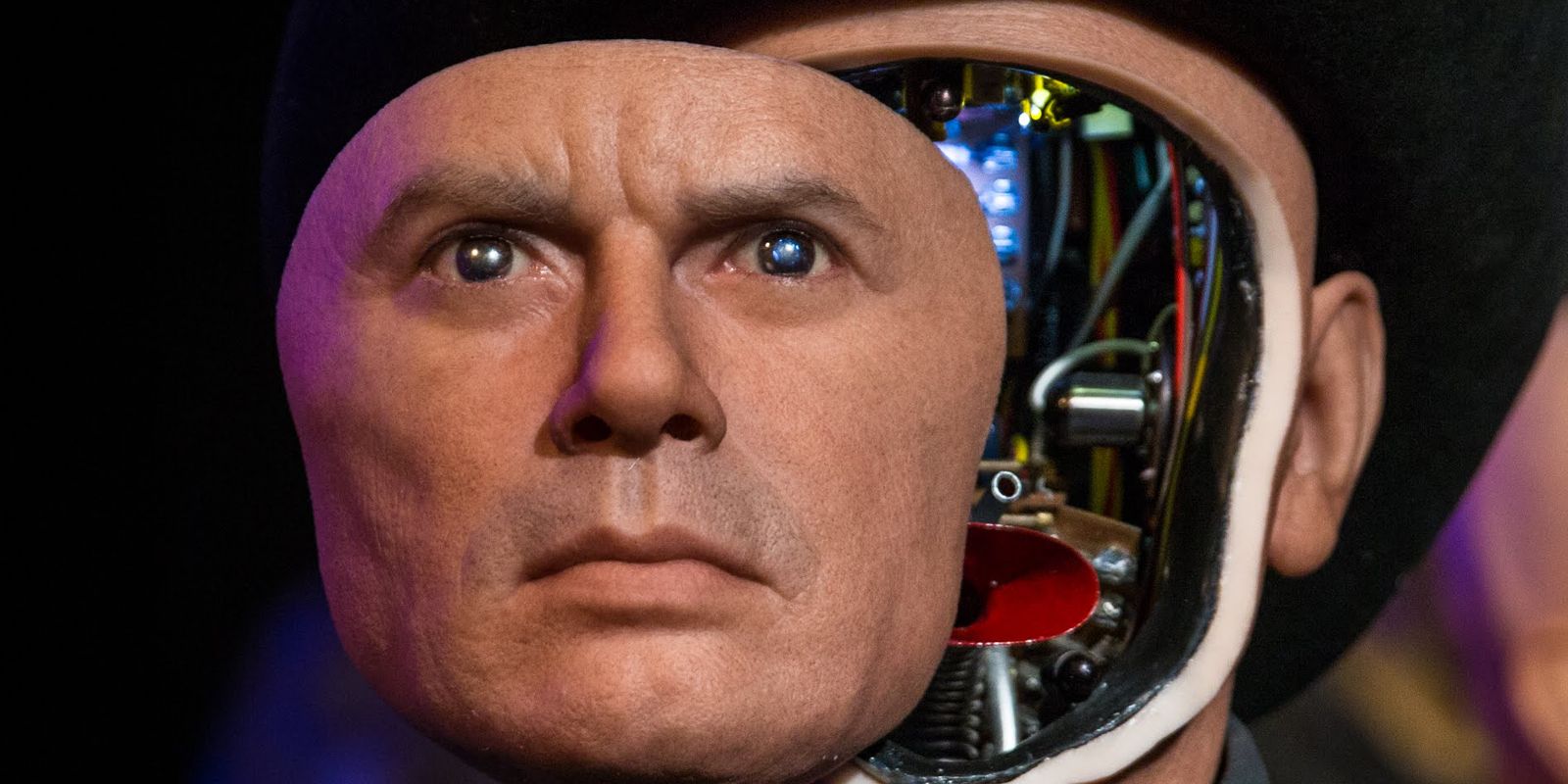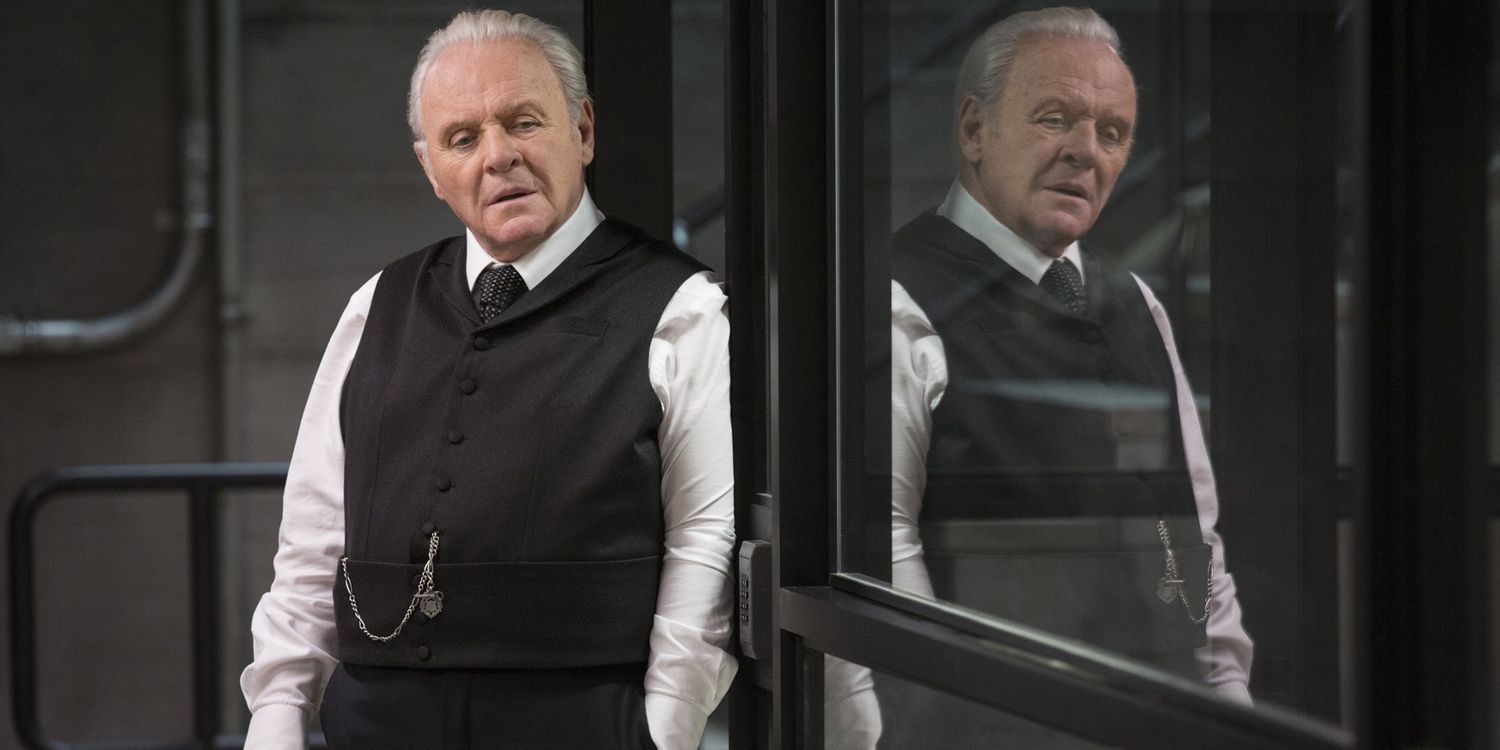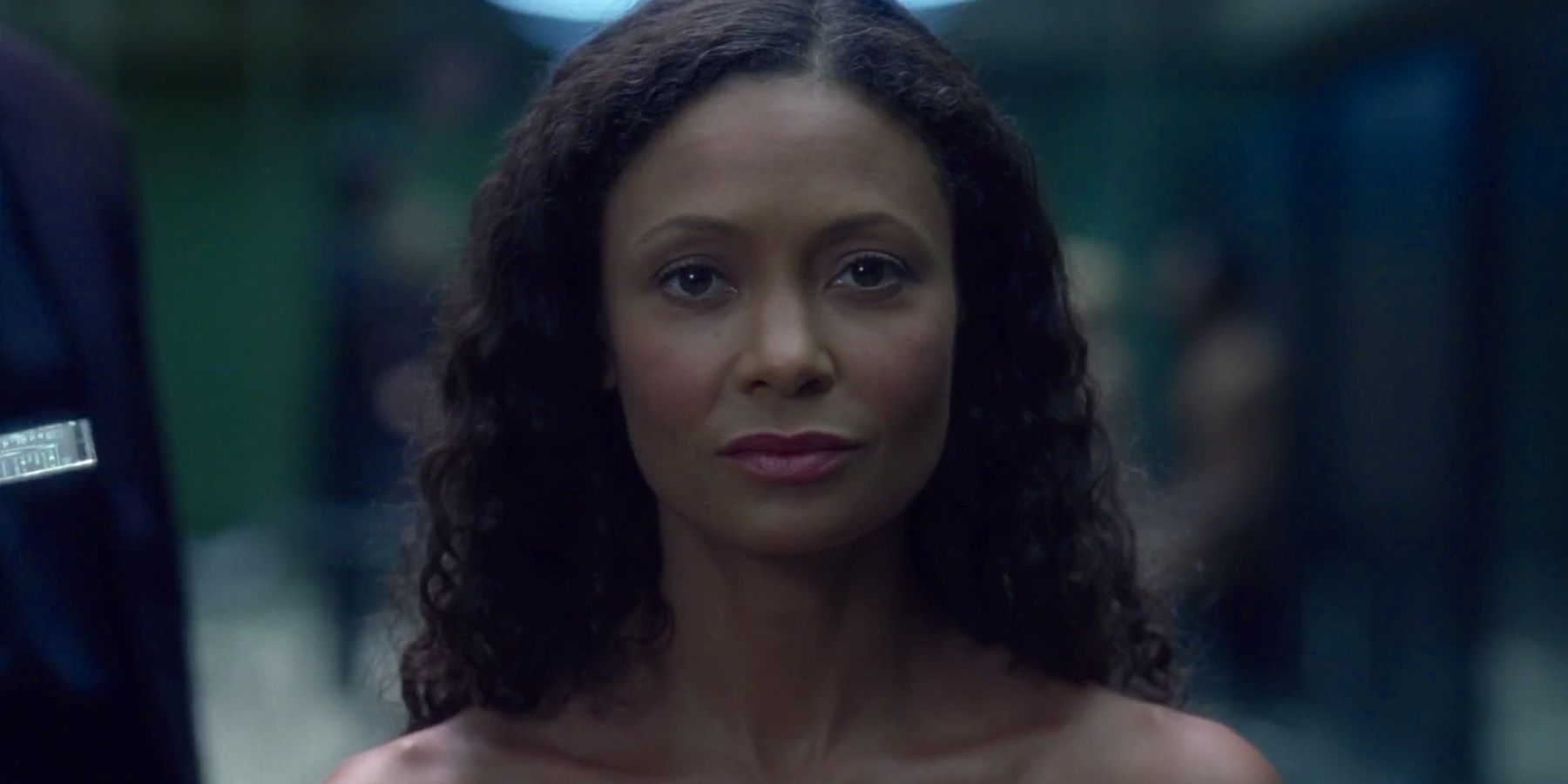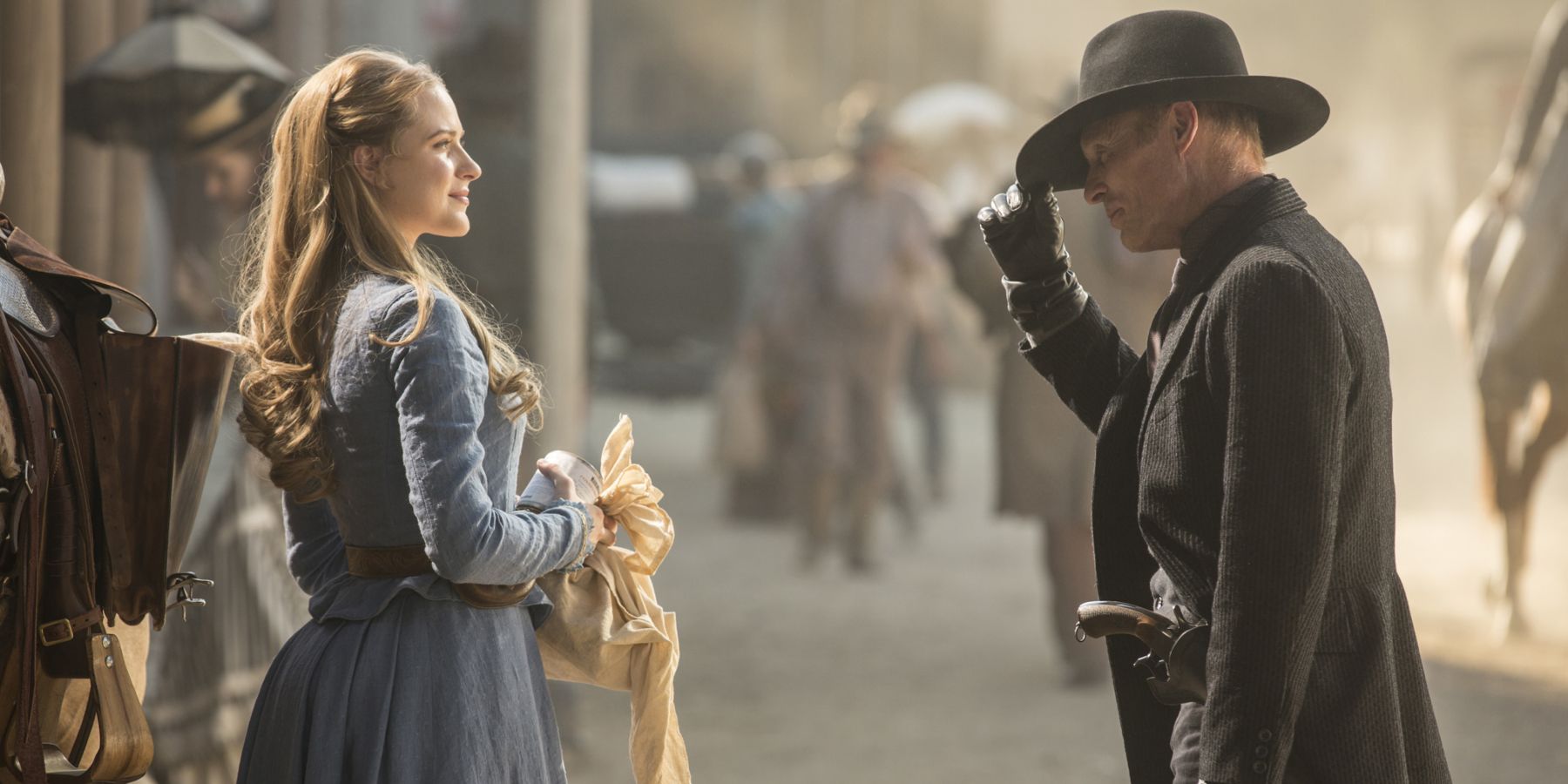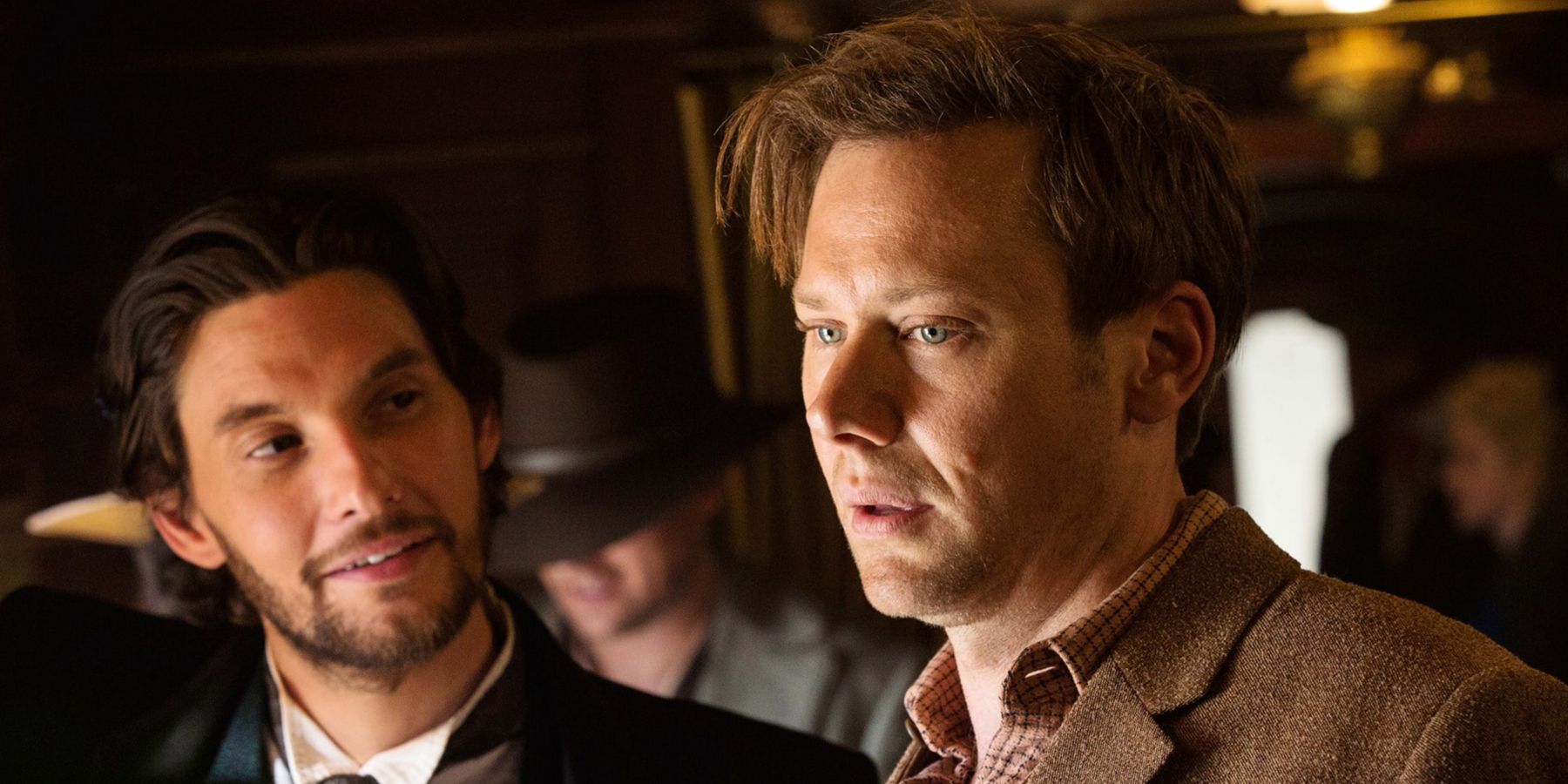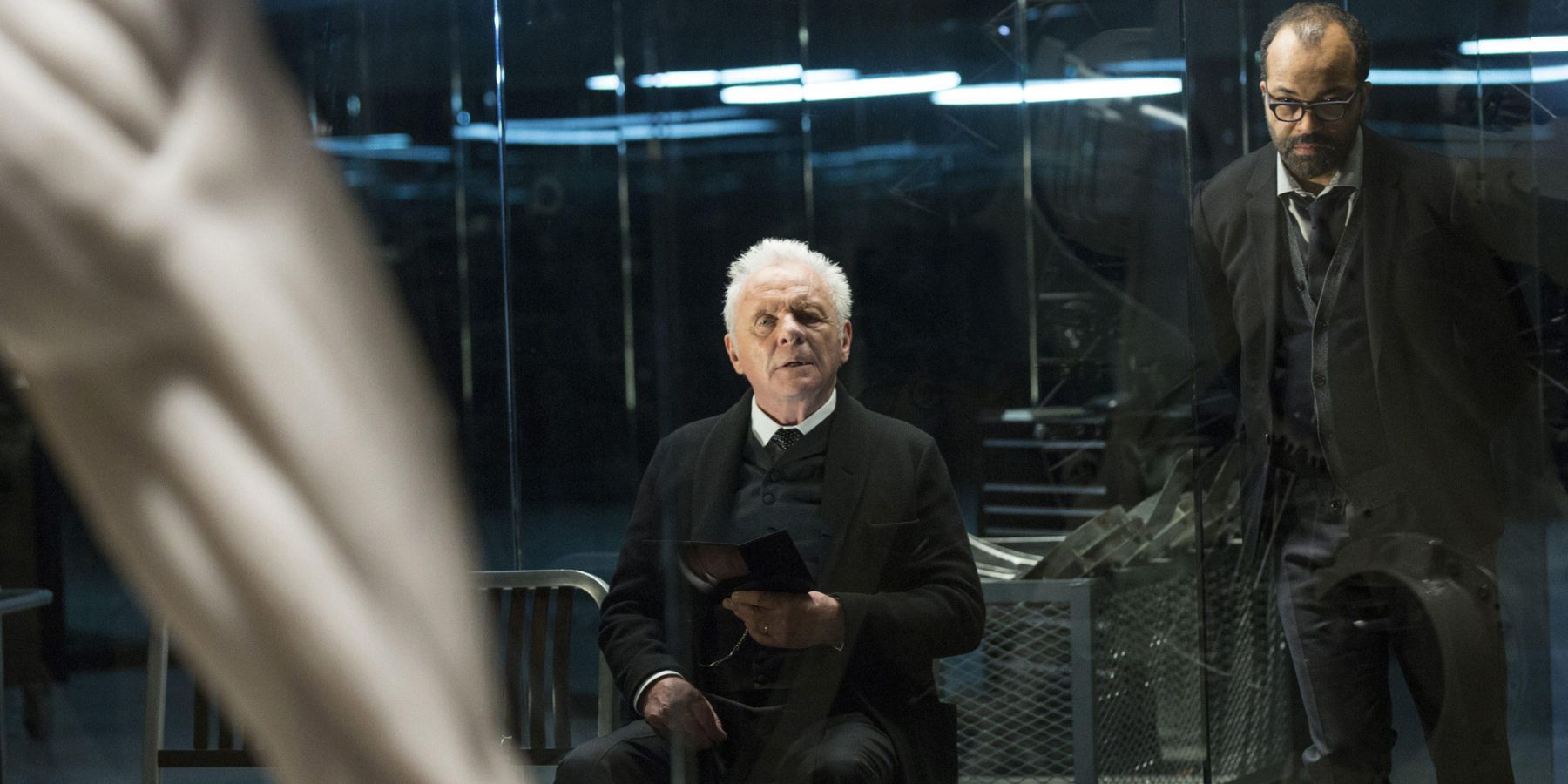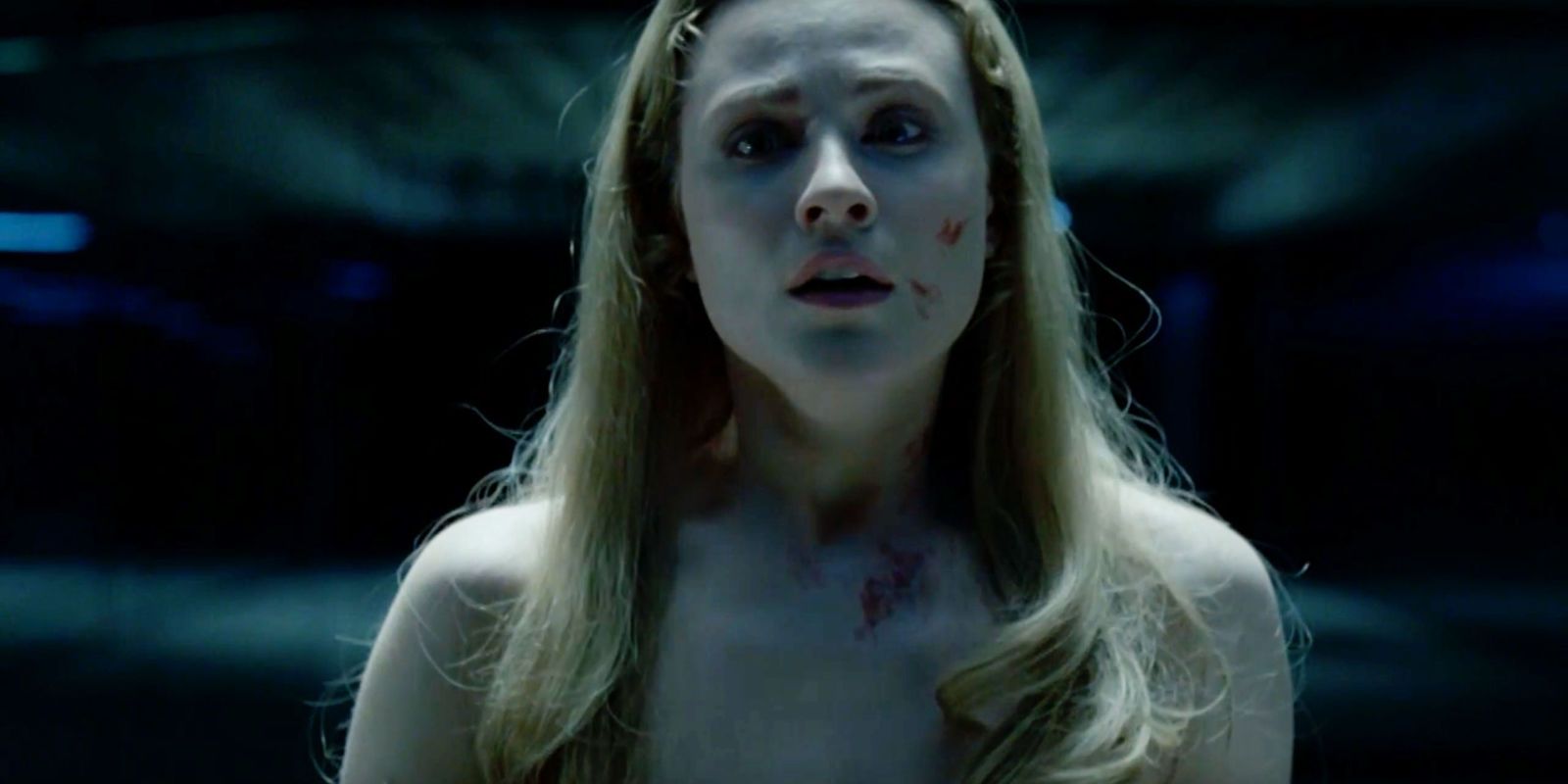Warning: SPOILERS for Westworld ahead
–
HBO's Westworld takes the concept of Jurassic Park author Michael Crichton's 1973 sci-fi thriller of the same name and spins it into a series-length exploration of artificial intelligence and the nature of humanity and consciousness. It's heady, philosophical stuff, but the wildly ambitious show, created by Jonathan Nolan (Interstellar) and Lisa Joy (Pushing Daisies) is up to the task, offering bold storytelling choices and a narrative with a fascinating, engaging mystery at its core.
The entertaining - but comparatively slight - original film toyed with the question of what happens when our creations turn on us. While HBO's Westworld takes that basic plot and expands it, the themes Nolan and Joy have on their mind go beyond murderous glitches in amusement park attractions. Beyond the well-trod sci-fi ground of AI run amok (a theme arguably handled with more of a subtle, complex edge in 2015's Ex Machina), Westworld plays with the nature of choice and predetermination in the actions of its characters and by extension what these mean in the context of a narrative itself.
Choices in Westworld
Any story amounts to the choices made by the characters. These appear preordained by the storyteller (novelist/filmmaker, etc.) but some would argue that they can be as much of a surprise to the author as to the eventual audience. The host characters in Westworld are frequently described as existing within "loops" - narrative constructs which strictly limit their choice of response to stimulus received by human guests. However, as several of the main characters - hosts and guests alike - attempt to break free of their loops, there remains a question of just how much control they really have.
From the very beginning, it was apparent that Westworld would play with notion of choice. When William (Jimmi Simpson) receives his "orientation" before entering the park, he is presented with the option of taking a white hat or black hat approach. In his first encounter with Dolores (Evan Rachel Wood), William responds to her dropping a can of food in the same way we've seen both Teddy (James Marsden) and the Man in Black (Ed Harris) react. The programmed moment requires a predictable response.
If Westworld really is presenting viewers with at least two distinct timelines, (William and Dolores' journey into the heart of Westworld's secrets in theory taking place perhaps thirty years before the Man in Black's parallel mission into the "maze"), and if William really is the younger Man in Black, then how much choice does William have over his actions? The Man in Black tells Teddy in episode 8, 'Trace Decay' that Arnold's story has a different set of rules than Ford's... but as we've seen, there is always a larger design.
The Bicameral Mind
As the park's founder Dr. Ford (Anthony Hopkins) explains to Bernard (Jeffrey Wright) in episode 3 'The Stray,' his former partner - the mysterious, as-yet unseen Arnold - based his innovative approach to the hosts' cognition on an obscure psychological theory from the 1970s called the "bicameral mind," based on the 1976 book The Origins of Consciousness in the Breakdown of the Bicameral Mind by Julian Jaynes.
The book theorizes that human beings did not develop consciousness as we know it until about 3,000 years ago. Before that, what we perceive now as the voice of the "self" was interpreted as direct commands from the gods. Humans would obey, but not without some level of questioning - the pushback seen from the hosts in Westworld when given an order is similar to this.
If a level of self-awareness is inevitable as Arnold's programming "glitch" takes hold, the question remains: did Arnold mean for this spread of awareness to be random, or are the hosts still holding to a particular loop? Are their choices pre-determined even in a state of self-awareness? All evidence points to something deeper at play. Arnold may have left his "voice" behind in the minds of the hosts as the ghost in the machine. The hosts' actions - self-aware choices or not - are thus not entirely under their own control.
Maeve and Memory
One key scene illustrates how little choice the hosts really have when presented with any new stimulus. Madam host Maeve is confronted with the truth about her reality and, when she refuses to accept that reality, the technician Felix (Leonardo Nam) shows her the limited responses she is capable as they branch out in real time.
Maeve shows signs of remembering previously wiped memories early on as she is haunted by flashes of a different life, one in which she was a homesteader with a daughter. Her literal journey of self-discovery leads to her threatening and cajoling two technicians into manipulating her code and allows her to become more self-aware, standing apart from the other hosts and remaining unaffected by pauses or changes in the narrative around her.
As we see in 'Trace Decay,' Maeve is still not entirely control of her impulses. She relives the death of her daughter at the hands of the Man in Black, becoming violent and needing to be subdued. Is this behavior a response to the boosting of her stats and self-awareness? Is it Arnold's influence? 'Trace Decay' also presented similar flashes of memory in Bernard. It may not be possible to completely wipe the hosts' mental hard drive. Even when her restrictions are seemingly lifted, her choices may not be her own.
William and Dolores and the Man in Black
While the fan theory of parallel storylines following William, Dolores and the Man in Black has yet to be confirmed or disproven, Dolores and William's experiences as they venture further down the rabbit hole clearly mirror what happens to the Man in Black as he draws closer to the mysterious maze. If the Man in Black really is a thirty-years-older William, it seems curious that he believes he can assert his will on what Arnold has designed. Nevertheless, he has been warned that the maze is "not for him," and yet is allowed to continue.
Many of our ideas about this particular storyline rely on the theory that William is the Man in Black being correct, which may not be the case. William's own adventure is one of self-discovery, and the choices he has made since hooking up with Dolores and literally ditching his white hat along the way provide an insight into how he is changing. His choices may be having a direct influence on the Man in Black's mission and goal - which makes William's journey in a sense preordained.
And what of Dolores? As the prototype host, she is deemed "special," and her journey - rife with references to Through the Looking-Glass, hallucinations full of cryptic messages and allusions to her ability to disrupt her own narrative without an outside rewrite of her code - is probably the most important plot thread and easily the most opaque.
If the scenes we have seen from the earlier episodes between Bernard and Dolores really do take place in a separate timeline than her scenes with William - and again, there are more reasons to think so than not - then the effects of her choices with William have direct ramifications in what we understand as the "present." The way Dolores is frequently overtaken by flashbacks and apparent hallucinations seems to mirror Maeve's experiences, notably the way both Dolores and Maeve are not able to control their impulses (Maeve with the knife, Dolores holding a gun to her own head).
The irony then is this: the hosts' increasing ability to make their own choices appears to be part of a preordained design, which we have been led to believe is Arnold's "game." Perhaps Arnold fully intended for his code to wreak havoc and destroy the park's status quo from within. If given the choice, many of the hosts might decide to upend their entire world once the truth has been revealed.
Dr. Ford and Bernard
The recent reveal that Bernard is in fact an android created by Dr. Ford came not so much as a surprise to fans as the fulfillment of a narrative promise. Of course at least one of the humans had to be synthetic... and Bernard may not be the only one. This places every decision we have seen Bernard make under scrutiny. He encouraged Behavior tech Elsie Hughes (Shannon Woodward) as she followed clues leading her to discover that Bernard's ex-lover (and boss) Theresa Cullen (Sidse Babett Knudsen) had been uploading sensitive data from the park to a satellite at the behest of Westworld's corporate owners Delos.
This instinct ties into his willingness to question Dr. Ford's own motives from time to time. However, when Bernard takes Theresa to see Ford, the park's founder tells her that everything Bernard has done is on his behalf. And after Ford has Bernard brutally murder Theresa, he plainly states his reason why: “One man’s life or death were but a small price to pay for the acquirement of the knowledge which I sought, for the dominion I should acquire.”
Which means, of course, that Bernard's actions were Ford's will made manifest. With this in mind, could there really be anything buried in what passes for the hosts' DNA - or anything else in Westworld for that matter - which would slip by Ford undetected? Ford's new narrative remains a mystery thus far, but it is bound to have a far-reaching effect on every other plot thread.
So much of what has happened in Westworld has been revealed to be part of Dr. Ford's design. So many of the choices the characters have made were unknowingly feeding into either Ford's design or Arnold's. Whatever the maze turns out to be (and we have no shortage of theories), it is likely that every step toward it is part of a larger plan. At least, that's what viewers have been led to believe.
The growth and change of any character comes from the choices they make. This aspect of a narrative mirrors life itself, and whether we realize it or not, it is what keeps us coming back for more story. Are our choices a result of free will or have they already been written? These questions are at the core of what Dolores, Maeve, the Man in Black and William are going through in Westworld. We'll find out soon enough who the "voice" of their god really is.
Fans have been assured that season 1 won't end on a cliffhanger, which suggests that there is some kind of resolution on the way. With Westworld returning for a second season, the question remains of just where the showrunners will take the overall narrative from here. Can we expect an overthrown Westworld? Will the hosts force the human overlords and guests to play along in a new, far darker tale of revenge and comeuppance? Expect any answers we get at the end of this season to likely lead into more questions as the game proceeds to the next level.
Westworld continues with “The Well-Tempered Clavier” November 27 on HBO.

